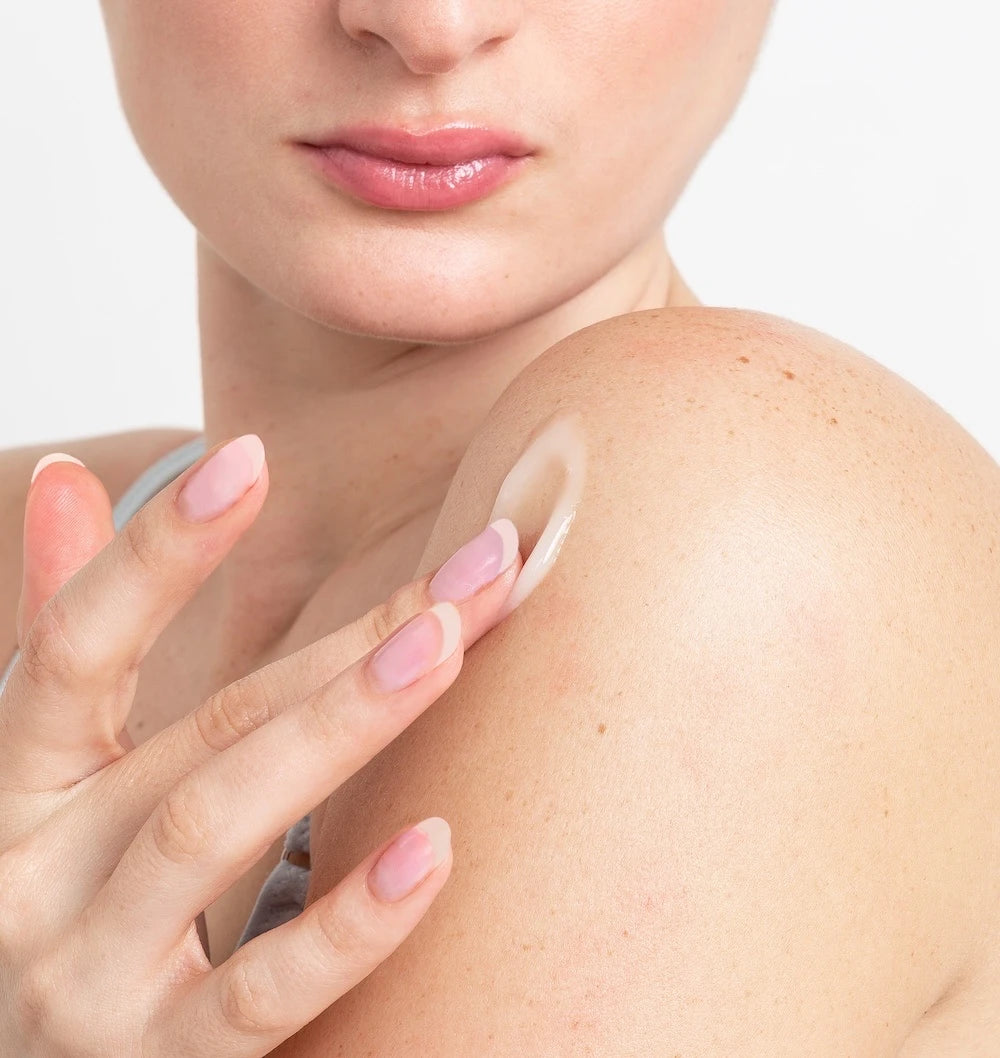Introduction
Psoriasis is a chronic autoimmune disease that affects the skin, affecting approximately 2 to 3% of the world's population. This non-contagious disease is characterized by red, scaly patches that can be painful, affecting the quality of life of those affected. But there is hope. In this article, we will explore different natural methods that can help soothe psoriasis and promote healthier skin.
Understanding psoriasis
Psoriasis is a chronic disease that affects skin cell renewal. There are different types of psoriasis, such as plaque psoriasis, guttata psoriasis, and pustular psoriasis. Each type has specific characteristics, but all share skin inflammation.
What is psoriasis?
Psoriasis is a skin condition that causes an acceleration of the skin cell renewal cycle. Normally this process takes about a month, but in people with psoriasis it can happen within a few days. The result is the accumulation of cells on the surface of the skin, forming thick, red, scaly patches.
The different forms of psoriasis
There are several types of psoriasis, including plaque psoriasis, which is the most common. Other forms include guttata psoriasis, which appears as small droplets on the skin, and reverse psoriasis, which affects folds of the skin.
Trigger factors for psoriasis
Psoriasis can be influenced by genetic factors, but certain environmental and lifestyle factors can also play a role. Stress, infections, smoking and certain medications can worsen psoriasis symptoms.Climatic variations, particularly dry and cold weather, can also cause flare-ups. It is therefore important to understand these triggering factors to better manage them.
Natural methods to soothe psoriasis
Nutrition and psoriasis
Your diet can have a significant impact on your psoriasis. In fact, certain foods can help reduce inflammation, a key factor in psoriasis flare-ups.
Foods beneficial for the skin
Foods rich in omega-3 fatty acids, such as salmon, flaxseed and walnuts, can help reduce inflammation. Additionally, a diet rich in fruits and vegetables, which are an excellent source of antioxidants, can help protect your skin.
Foods to avoid
Certain foods can worsen inflammation and therefore psoriasis. It's best to avoid processed foods, refined sugars, red meats, and dairy products if you have psoriasis.
Skin hydration and natural topical care
Well-hydrated skin is essential for managing psoriasis. Regular use of moisturizing creams and lotions can help reduce dryness and itching.
Importance of hydration
Hydration helps maintain the skin's protective barrier, which can be compromised by psoriasis. Using a moisturizer after showering, when skin is still damp, can help lock in moisture.
Natural topical remedies
Certain oils, such as coconut oil or jojoba oil, have moisturizing and anti-inflammatory properties that can be beneficial. Likewise, aloe vera gel can soothe inflamed and irritated skin.
A natural treatment that can be very effective for psoriasis is the comforting multi-balm from Omri.
This balm composed of nourishing shea butter, mandarin and vanilla essential oils and CBD to maximize its soothing effects. It is specifically formulated to help restore and maintain skin balance and soothe skin discomforts such as irritation, areas of dryness and itching typical of psoriasis.
Practical and versatile, this balm finds its place in your handbag as well as in your bathroom. Ideal to integrate into your daily skincare routine.
Stress management and lifestyle
The role of stress in psoriasis
Stress can trigger or worsen psoriasis by stimulating an inflammatory response. Learning to manage stress is therefore a key part of managing psoriasis.
Relaxation techniques
Relaxation techniques, such as meditation, deep breathing and yoga, can help reduce stress. These practices can help you feel calmer and reduce inflammation.
Importance of physical activity
Physical activity can help reduce stress and improve overall well-being. Whether you choose walking, cycling, swimming or yoga, the important thing is to choose an activity you enjoy and do it regularly.
Complementary natural treatments
The importance of light therapy
Light therapy, or phototherapy, is an effective treatment for many people with psoriasis. This therapy uses ultraviolet light, which can slow the excessive growth of skin cells.
Use of essential oils
Certain essential oils, such as lavender oil or tea tree oil, have soothing and anti-inflammatory properties that may be beneficial for psoriasis.
CBD and psoriasis
Cannabidiol (CBD), a compound found in cannabis, has anti-inflammatory and analgesic effects. Some studies suggest that CBD may help reduce inflammation and relieve psoriasis symptoms.
Conclusion
Psoriasis can be a difficult condition to manage, but there are many natural strategies to soothe symptoms and improve skin quality. By combining a healthy diet, appropriate skin care, stress management, and complementary treatments, it is possible to live more comfortably with psoriasis.
FAQ
- What causes psoriasis?
Psoriasis is an autoimmune disease. This means that the immune system mistakenly attacks healthy cells in the body, causing accelerated production of skin cells.
- Is psoriasis contagious?
No, psoriasis is not contagious. You cannot catch it through contact with someone who has this disease.
- What are the different types of psoriasis?
There are several types of psoriasis, including plaque psoriasis (the most common), guttate psoriasis, inverse psoriasis, pustular psoriasis, and erythrodermic psoriasis.
- What are the first signs of psoriasis?
Signs of psoriasis can vary, but generally include red patches on the skin covered with silvery scales, itchy or sore skin, and thick, uneven nails.
- Is there a cure for psoriasis?
There is no definitive cure for psoriasis. However, many treatments can help manage symptoms and prevent flare-ups.
- What foods should I avoid if I have psoriasis?
Certain foods can trigger psoriasis flare-ups in some people. These foods can include alcohol, gluten, dairy, fried foods, processed foods, and foods high in sugar.
- How does psoriasis affect the immune system?
Psoriasis is an autoimmune disease, which means that the immune system attacks its own cells. In psoriasis, the immune system speeds up the production of skin cells.
- Can stress trigger a psoriasis flare-up?
Yes, stress is known to be a potential trigger for psoriasis flare-ups.
- What types of natural treatments can help manage psoriasis?
Approaches such as an anti-inflammatory diet, stress management through meditation or yoga, the use of alternative medicines, such as acupuncture or homeopathy and the use of soothing topical products, like Omri's Comforting Multi-Balm, can help manage psoriasis symptoms.
- What essential oils can help relieve psoriasis?
Certain essential oils, such as lavandin and tea tree, have anti-inflammatory properties and can help relieve psoriasis symptoms.
- Can CBD help relieve psoriasis?
Some studies suggest that CBD, thanks to its anti-inflammatory properties, could reduce skin inflammation associated with psoriasis. It may also act on the endocannabinoid system to regulate excessive skin cell growth, a typical symptom of psoriasis. Finally, CBD, through its hydrating and soothing potential, could help reduce itching and dry skin associated with psoriasis.
- Can psoriasis cause other health problems?
Yes, people with psoriasis are more likely to develop certain other conditions, including psoriatic arthritis, heart disease, type 2 diabetes, and depression.
- How does climate affect psoriasis?
Dry, cold weather can make psoriasis worse, while hot, humid weather can help improve symptoms.
- How to manage psoriasis flare-ups?
It is important to identify and avoid potential triggers, maintain well-hydrated skin, follow an anti-inflammatory diet, exercise regularly and manage stress. it is always best to consult a healthcare professional






